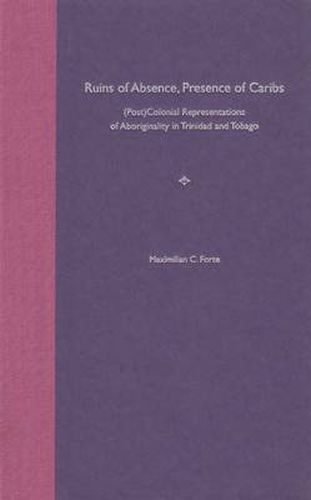Readings Newsletter
Become a Readings Member to make your shopping experience even easier.
Sign in or sign up for free!
You’re not far away from qualifying for FREE standard shipping within Australia
You’ve qualified for FREE standard shipping within Australia
The cart is loading…






This study of a contemporary indigenous culture documents the vitality of a number of self-constructed
indigenous
Carib communities in the postcolonial Caribbean. These small groups, which have asserted their presence through folklore, tradition, and ceremony, have received recognition and support from the state, attention from national media, and a privileged place in historical discussions of the figure of the
Carib.
The Caribbean is typically thought of as having no precolonial survivors. Maximilian Forte demonstrates that this is not the case. He convincingly argues that an indigenous presence has persisted in Trinidad and Tobago - as an actual demographic presence and a symbolic force - since the colonial period. Focusing on the Santa Rosa Carib Community in Arima, Trinidad, he explores how
Carib
has come into being as a meaningful category in Trinidad, how it has been challenged and reengineered, and how it affects the relationship between colonial political economy and modern identity formation. He also explores two previous resurgences of Amerindian community and identity in Trinidad, in the 1820s and again in the 1870s to the 1920s. Balanced between history and contemporary ethnography, this book ranges from the analysis of the forces of globalization to the performance of local rituals. By tracing notions and labels - Carib, Arawak, Indian - through time, Forte shows how indigeneity is deeply enmeshed in historical processes.
$9.00 standard shipping within Australia
FREE standard shipping within Australia for orders over $100.00
Express & International shipping calculated at checkout
This study of a contemporary indigenous culture documents the vitality of a number of self-constructed
indigenous
Carib communities in the postcolonial Caribbean. These small groups, which have asserted their presence through folklore, tradition, and ceremony, have received recognition and support from the state, attention from national media, and a privileged place in historical discussions of the figure of the
Carib.
The Caribbean is typically thought of as having no precolonial survivors. Maximilian Forte demonstrates that this is not the case. He convincingly argues that an indigenous presence has persisted in Trinidad and Tobago - as an actual demographic presence and a symbolic force - since the colonial period. Focusing on the Santa Rosa Carib Community in Arima, Trinidad, he explores how
Carib
has come into being as a meaningful category in Trinidad, how it has been challenged and reengineered, and how it affects the relationship between colonial political economy and modern identity formation. He also explores two previous resurgences of Amerindian community and identity in Trinidad, in the 1820s and again in the 1870s to the 1920s. Balanced between history and contemporary ethnography, this book ranges from the analysis of the forces of globalization to the performance of local rituals. By tracing notions and labels - Carib, Arawak, Indian - through time, Forte shows how indigeneity is deeply enmeshed in historical processes.